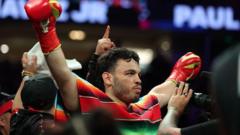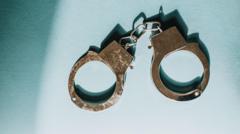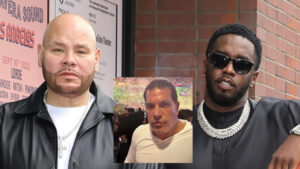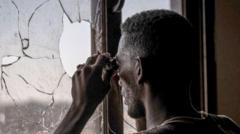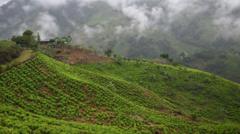With large areas of eastern DR Congo under the control of the M23 rebel group, the government has offered up to $5 million in bounties to apprehend key leaders. The ongoing conflict has led to thousands of deaths and significant displacement, with the government also appealing for international support against allegations of Rwandan intervention.
DR Congo Offers $5 Million Bounty for Rebel Leaders Amid Ongoing Conflict
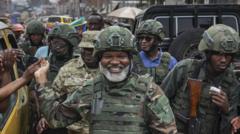
DR Congo Offers $5 Million Bounty for Rebel Leaders Amid Ongoing Conflict
The Congolese government has announced a substantial bounty for the arrest of M23 rebel leaders, intensifying efforts to address the escalating crisis in the eastern regions of the country.
The Democratic Republic of Congo (DRC) government has recently announced a reward of $5 million (£4 million) for information leading to the arrest of three prominent leaders of the M23 rebel group, which has made significant territorial gains in the eastern part of the country this year. This announcement comes as the Congolese army struggles to counter the Rwandan-supported insurgents who have claimed control over vital regions, including the major cities of Goma and Bukavu.
The key figures sought by the government include Corneille Nangaa, a former electoral commission head and current leader of the Congo River Alliance that comprises the M23 faction. In addition to Nangaa, M23 leaders Sultani Makenga and Bertrand Bisimwa are also subject to the bounty, following their conviction in absentia last year by a military court, which sentenced them to death for treason.
Amid escalating violence, the DRC has raised many eyebrows by also offering a $4 million (£3 million) reward for two exiled journalists and others considered accomplices of the rebels. Despite the hefty rewards, the likelihood of successful arrests appears dim, given the military's inadequate response to the advancing rebel troops.
President Félix Tshisekedi has shifted his focus toward garnering international recognition of Rwanda's alleged interference by attempting to build pressure for sanctions against the country, which UN reports suggest has about 4,000 troops actively collaborating with the M23 within DRC.
As armed conflict continues, thousands have perished and many more have been forced to flee their homes, exacerbating humanitarian challenges in the region. The government has sought U.S. assistance, aimed at gaining support in return for access to its rich mineral reserves, including gold and coltan, which are essential for electronics used worldwide.
The DRC accuses Rwanda of attempting to seize its mineral wealth, suggesting that materials meant for global supply chains are being illicitly removed and processed in Rwanda. Official statements from the DRC also propose that the U.S. should source these minerals from the DRC instead of Rwanda, which is seen as complicit in the ongoing violence.
Rwanda has countered allegations of mineral theft while acknowledging its support for the M23, claiming it acts preventively to contain the conflict's spread. The Rwandan government has accused the DRC of collusion with a separate armed group tied to those linked to the 1994 Rwandan genocide, a claim the Congolese state vehemently denies.
As the conflict persists, regional tensions continue to rise, and the need for a comprehensive resolution becomes increasingly urgent.

